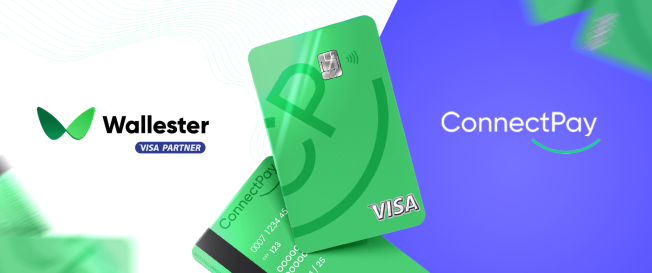It’s no secret that plastic production and recycling drastically affect the environment. Nowadays, physical cards remain the №1 payment solution worldwide. However, it’s a good sign that the use of virtual cards and e-wallets, as well as physical cards made of recycled materials, is growing exponentially, decreasing the ecological footprint.
Innovative technologies lead the way, and in the near future, standard plastic will be replaced by more eco-friendly and functional means of payment. This way, environmental pollution can be significantly reduced, keeping the flexibility and convenience of cashless payments.
Physical and virtual cards: standard features and fundamental differences
A virtual card is a bank product issued without a physical card and is designated for cashless payments. This card has all the aspects of conventional plastic cards as follows:
- Individual 16-digit numbers are used for payment transactions and online shopping.
- CVV security code required for online transaction confirmations
- Card validity date required for orders or subscriptions
- Being issued by an issuing bank and belonging to one of the international systems (Visa, MasterCard, American Express, etc.).
In terms of regular functions, virtual cards have no discrepancy compared to their plastic predecessors. Still, when it comes to user functionality, some differences between them may be noted.
First, going to the bank isn’t needed to create a virtual payment product. The card is issued on the spot and connected to a mobile app on the smartphone right away. Such a prompt service lets you make payments within a few minutes after issuing the card.
Second, a virtual card can serve as an extra “wallet” for online purchases, with an amount required transferred to the card. This way, you can ensure your main card details remain safe.
Virtual card benefits
The refusal of plastic in the payment industry is a smart solution both in the short and long term. This fact has already been admitted by financial organizations, as well as by regular cardholders.
Another advantage is the enormous amount of money saved by avoiding plastic card production. The banks save considerable funds even by partially turning to virtual payment products. Cardholders also enjoy benefits, getting a cutting-edge payment solution at their disposal — not on a physical carrier but as a handy app on their smartphone or smartwatch. These mutual perks are why banks encourage their clients to refuse plastic cards, offering various bonuses and stimulating them to switch to contactless transactions instead.
The ecological aspect is yet another substantial advantage. Gradual refusal of plastic will significantly decrease the negative environmental impact, considering card production and recycling. Even a slight reduction will bring a positive effect when considering the current card issuance figures.
The best alternative to plastic cards
Paying close attention to environmental protection, our company offers clients virtual cards with broad functionality — for multiple use and single purchases. With their help, you can pay via POS terminals, make online purchases, and even withdraw cash in ATMs.
Virtual cards are an indispensable tool for any business that purchases online media. If you purchase advertising on Google or Facebook regularly, you know that to reach desired KPIs on these social media platforms. Virtual cards bring your goals closer. Issue unlimited virtual cards and manage each ad campaign via a separate card with an individual limit.
A virtual card is issued immediately and can be used at once to make payments within the limit set. The card is connected to mobile payment systems (Apple Pay, Google Pay, Samsung Pay, etc.) for a cardholder to make purchases using a smartphone or other NFC-enabled mobile devices.
A high transaction security level when using our virtual cards is ensured by 3D Secure technology. A short card validity period and a fixed shopping limit set by the user eliminate the possibility of fraudulent actions.
Easy and fast issuance, eco-friendliness, versatility, and high-security standards make virtual cards a worthy competitor to traditional plastic ones. Over time, contactless technologies will continue to be the leading force. We make smart choices!
We will be happy to meet and discuss your business case and how we can help.
Please feel free to contact us here.
We’re here to assist you.


